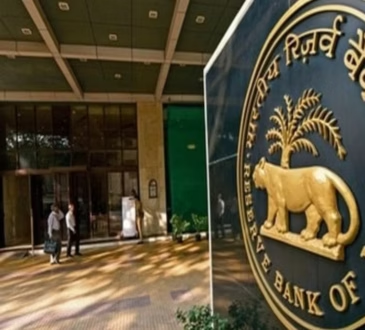BENGALURU – Asian share markets tumbled on March 31 as traders moved away from risk assets in trade-reliant emerging economies, after US President Donald Trump said the reciprocal tariffs to be announced this week would essentially affect all countries.
Mr Trump’s comments sent global markets into turmoil, fuelling concerns that tariffs would severely impact the US economy and cloud the global growth outlook, raising the risks of a recession.
Most equities in emerging Asian markets slumped to multi-month lows on the final trading day of the quarter, although major markets in South-east Asia – Indonesia, Malaysia, and Singapore – were closed for a public holiday.
“A range of Asian countries will face the challenge of reciprocal tariffs, with Vietnam and Thailand among the most vulnerable,” said Ma Tieying, a senior economist at DBS.
South Korea was most vulnerable to automobile tariffs, Mr Ma said, adding that Malaysia and Singapore were susceptible to semiconductor and pharmaceutical tariffs, respectively.
South Korea’s Kospi slumped 2.9 per cent to its lowest levels since early February, marking its third consecutive session in the red.
Taiwan’s benchmark index plunged 4.2 per cent to its weakest point in nearly eight months, while its dollar weakened 0.4 per cent to its lowest point since March 2016. Taiwan is one of the “Dirty 15” countries that have the highest trade surpluses with the United States and stands exposed to U..tariffs through the export of its high-tech products such as semiconductors.
Thailand’s benchmark tumbled to its lowest point since April 2020 in early trade, dragged lower by banks and industrials. Trading resumed after being halted on March 29 following tremors from an earthquake in Myanmar that were felt in Bangkok.
Japan’s Nikkei index sank 3.9 per cent to the lowest level in more than six months. Hong Kong’s Hang Seng fell 1.6 per cent while the Shanghai Composite was 0.8 per cent lower.
MSCI’s broadest index of Asia-Pacific shares outside Japan shed 1.6 per cent, while a gauge of Asian emerging market equities plumbed 1.8 per cent to a near three-week low.
Money managers around the world are de-risking their portfolios or refraining from taking big positions as they remain wary about the announcement of the so-called reciprocal tariffs and the impact on the economy. Goldman Sachs economists now forecast both the Federal Reserve and European Central Bank will cut interest rates three times this year as the curbs on trade hurt momentum.
“All these haphazard and aggressive policy changes that we’ve seen from the Trump administration are having negative economic impacts,” said Katrina Ell, director of economic research at Moody’s Analytics. “And that’s why we’re seeing the rhetoric US recession odds rising quite aggressively. It’s a concerning picture we’re going into.”
Mr Trump said on March 31 he plans to start his reciprocal tariff push with “all countries,” tamping down speculation that he could limit the initial scope of tariffs set to be unveiled on April 2. The president, who has touted his upcoming measures as a ‘Liberation Day,’ escalated his trade war last week by slapping a 25 per cent levy on all cars not made in the US. Reciprocal duties will be “very lenient,” he said previously.
Most South-east Asian currencies crept higher against the US dollar as a safety flight to US Treasuries pressured the greenback.
Though most regional currencies seem to be exiting the first quarter relatively unburned through all the tariff frenzy, analysts at MUFG expect the upcoming three months will not be the same.
“We expect an overall depreciation of Asian currencies against the dollar in Q2,” analysts at MUFG wrote. “However, with different degrees of exposures to tariffs, and country specific factors, some currency would weaken more than others.”
The Thai baht, the Philippine peso and the Singapore dollar saw slight gains against the US dollar on the day. All three currencies were on track to end the March quarter stronger against the greenback. REUTERS, BLOOMBERG
Join ST’s Telegram channel and get the latest breaking news delivered to you.




